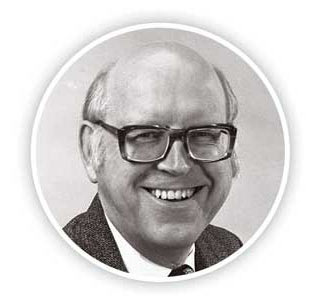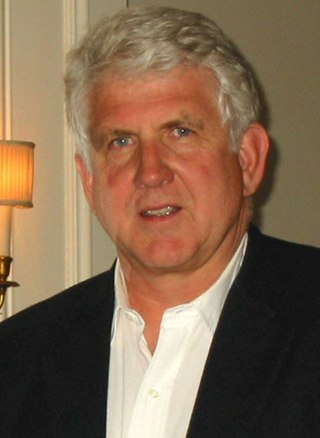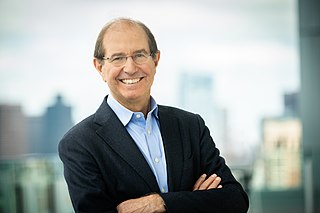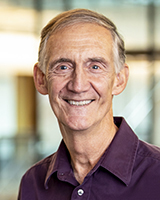Related Research Articles

The School of Computer Science (SCS) at Carnegie Mellon University in Pittsburgh, Pennsylvania, US is a school for computer science established in 1988. It has been consistently ranked among the top computer science programs over the decades. As of 2022 U.S. News & World Report ranks the graduate program as tied for second with Stanford University and University of California, Berkeley. It is ranked second in the United States on Computer Science Open Rankings, which combines scores from multiple independent rankings.

Allen Newell was an American researcher in computer science and cognitive psychology at the RAND Corporation and at Carnegie Mellon University's School of Computer Science, Tepper School of Business, and Department of Psychology. He contributed to the Information Processing Language (1956) and two of the earliest AI programs, the Logic Theorist (1956) and the General Problem Solver (1957). He was awarded the ACM's A.M. Turing Award along with Herbert A. Simon in 1975 for their contributions to artificial intelligence and the psychology of human cognition.

Robert "Bob" Melancton Metcalfe is an American engineer and entrepreneur who contributed to the development of the internet in the 1970s. He co-invented Ethernet, co-founded 3Com, and formulated Metcalfe's law, which describes the effect of a telecommunications network. Metcalfe has also made several predictions which failed to come to pass, including forecasting the demise of the internet during the 1990s.

Dabbala Rajagopal "Raj" Reddy is an Indian-born American computer scientist and a winner of the Turing Award. He is one of the early pioneers of artificial intelligence and has served on the faculty of Stanford and Carnegie Mellon for over 50 years. He was the founding director of the Robotics Institute at Carnegie Mellon University. He was instrumental in helping to create Rajiv Gandhi University of Knowledge Technologies in India, to cater to the educational needs of the low-income, gifted, rural youth. He was the founding chairman of International Institute of Information Technology, Hyderabad. He is the first person of Asian origin to receive the Turing Award, in 1994, known as the Nobel Prize of Computer Science, for his work in the field of artificial intelligence.

William Daniel Hillis is an American inventor, entrepreneur, and computer scientist, who pioneered parallel computers and their use in artificial intelligence. He founded Thinking Machines Corporation, a parallel supercomputer manufacturer, and subsequently was Vice President of Research and Disney Fellow at Walt Disney Imagineering.

Judea Pearl is an Israeli-American computer scientist and philosopher, best known for championing the probabilistic approach to artificial intelligence and the development of Bayesian networks. He is also credited for developing a theory of causal and counterfactual inference based on structural models. In 2011, the Association for Computing Machinery (ACM) awarded Pearl with the Turing Award, the highest distinction in computer science, "for fundamental contributions to artificial intelligence through the development of a calculus for probabilistic and causal reasoning". He is the author of several books, including the technical Causality: Models, Reasoning and Inference, and The Book of Why, a book on causality aimed at the general public.

Silvio Micali is an Italian computer scientist, professor at the Massachusetts Institute of Technology and the founder of Algorand, a proof-of-stake blockchain cryptocurrency protocol. Micali's research at the MIT Computer Science and Artificial Intelligence Laboratory centers on cryptography and information security.

Simson L. Garfinkel is the chief scientist of BasisTech in Somerville, Massachusetts. He was previously a program scientist at AI2050, part of Schmidt Futures. He has held several roles across government, including a Senior Data Scientist at the Department of Homeland Security, the US Census Bureau's Senior Computer Scientist for Confidentiality and Data Access and a computer scientist at the National Institute of Standards and Technology. From 2006 to 2015, he was an associate professor at the Naval Postgraduate School in Monterey, California. In addition to his research, Garfinkel is a journalist, an entrepreneur and an inventor; his work is generally concerned with computer security, privacy and information technology.

Héctor García-Molina was a Mexican-American computer scientist and Professor in the Departments of Computer Science and Electrical Engineering at Stanford University. He was the advisor to Google co-founder Sergey Brin from 1993 to 1997 when Brin was a computer science student at Stanford.

Aaron Sloman is a philosopher and researcher on artificial intelligence and cognitive science. He held the Chair in Artificial Intelligence and Cognitive Science at the School of Computer Science at the University of Birmingham, and before that a chair with the same title at the University of Sussex. Since retiring he is Honorary Professor of Artificial Intelligence and Cognitive Science at Birmingham. He has published widely on philosophy of mathematics, epistemology, cognitive science, and artificial intelligence; he also collaborated widely, e.g. with biologist Jackie Chappell on the evolution of intelligence.
Powerset was an American company based in San Francisco, California, that, in 2006, was developing a natural language search engine for the Internet. On July 1, 2008, Powerset was acquired by Microsoft for an estimated $100 million.
Barney Pell is an American entrepreneur, angel investor and computer scientist. He was co-founder and CEO of Powerset, a pioneering natural language search startup, search strategist and architect for Microsoft's Bing search engine, a pioneer in the field of general game playing in artificial intelligence, and the architect of the first intelligent agent to fly onboard and control a spacecraft. He was co-founder, Vice Chairman and Chief Strategy Officer of Moon Express; co-founder and chairman of LocoMobi; and Associate Founder of Singularity University.
Michael Jay Franklin is an American software entrepreneur and computer scientist specializing in distributed and streaming database technology. He is Liew Family Chair of Computer Science and chairman for the Department of Computer Science at the University of Chicago.

Sivaramakrishnan Somasegar is an Indian-American technology business executive in the Greater Seattle Area. He is a Managing Director at Madrona Venture Group, a venture capital firm based in Seattle. Somasegar joined Madrona in November 2015 after a 27-year career at Microsoft, where he most recently was corporate vice president of the developer division and overseeing the global distributed R&D centers at Microsoft.
Netbot was the first commercial Internet price comparison service. Founded by University of Washington Computer Science professors Oren Etzioni and Daniel S. Weld the company was funded by ARCH Venture Partners, Alta Partners and the Madrona Venture Group, and the University of Washington was also a shareholder. Netbot introduced the Jango comparison shopping “agent” first as a browser plug-in and later as a server product. In addition, the company operated MetaCrawler, a metasearch engine, before licensing it to Go2Net. In October 1997, Netbot was acquired by the Excite portal for $35M.

Edward D. "Ed" Lazowska is an American computer scientist. He is a Professor, and the Bill & Melinda Gates Chair emeritus, in the Paul G. Allen School of Computer Science & Engineering at the University of Washington.

Oren Etzioni is an American entrepreneur, Professor Emeritus of computer science, and founding CEO of the Allen Institute for Artificial Intelligence (AI2). On June 15, 2022, he announced that he will step down as CEO of AI2 effective September 30, 2022. After that time, he will continue as a board member and advisor. Etzioni will also take the position of Technical Director of the AI2 Incubator.

An infobox is a digital or physical table used to collect and present a subset of information about its subject, such as a document. It is a structured document containing a set of attribute–value pairs, and in Wikipedia represents a summary of information about the subject of an article. In this way, they are comparable to data tables in some aspects. When presented within the larger document it summarizes, an infobox is often presented in a sidebar format.
Thomas Austin Alberg was an American lawyer and businessman, founder and managing partner of the venture capital firm Madrona Venture Group, and a director of Amazon.com from 1996 to 2019. In addition to investing in many high tech startups, he was one of the earliest investors in Amazon. At Madrona, some of Alberg's investments included Impinj, a RFID technology start-up, online real estate brokerage Redfin, business management as-a-service provider Apptio and Isilon Systems, a storage software provider which was later acquired by the Emc Corporation.
Daniel Abadi is the Darnell-Kanal Professor of Computer Science at University of Maryland, College Park. His primary area of research is database systems, with contributions to stream databases, distributed databases, graph databases, and column-store databases. He helped create C-Store, a column-oriented database, and HadoopDB, a hybrid of relational databases and Hadoop. Both database systems were commercialized by companies.
References
- 1 2 "Daniel S. Weld" (PDF). Retrieved 2008-11-12.
- 1 2 "Elected AAAI Fellows" . Retrieved 2008-11-12.
- ↑ "The Mathematics Genealogy Project" . Retrieved 2008-11-12.
- ↑ Daniel S. Weld (2008-11-11). "Intelligence in Wikipedia". YouTube . Retrieved 3 July 2009.
- ↑ "Dan Weld". Madrona. Retrieved 5 November 2014.
- 1 2 "Daniel S. Weld" . Retrieved 2008-11-12.
- ↑ "ACM: Fellows Award/Daniel S Weld" . Retrieved 2008-11-12.